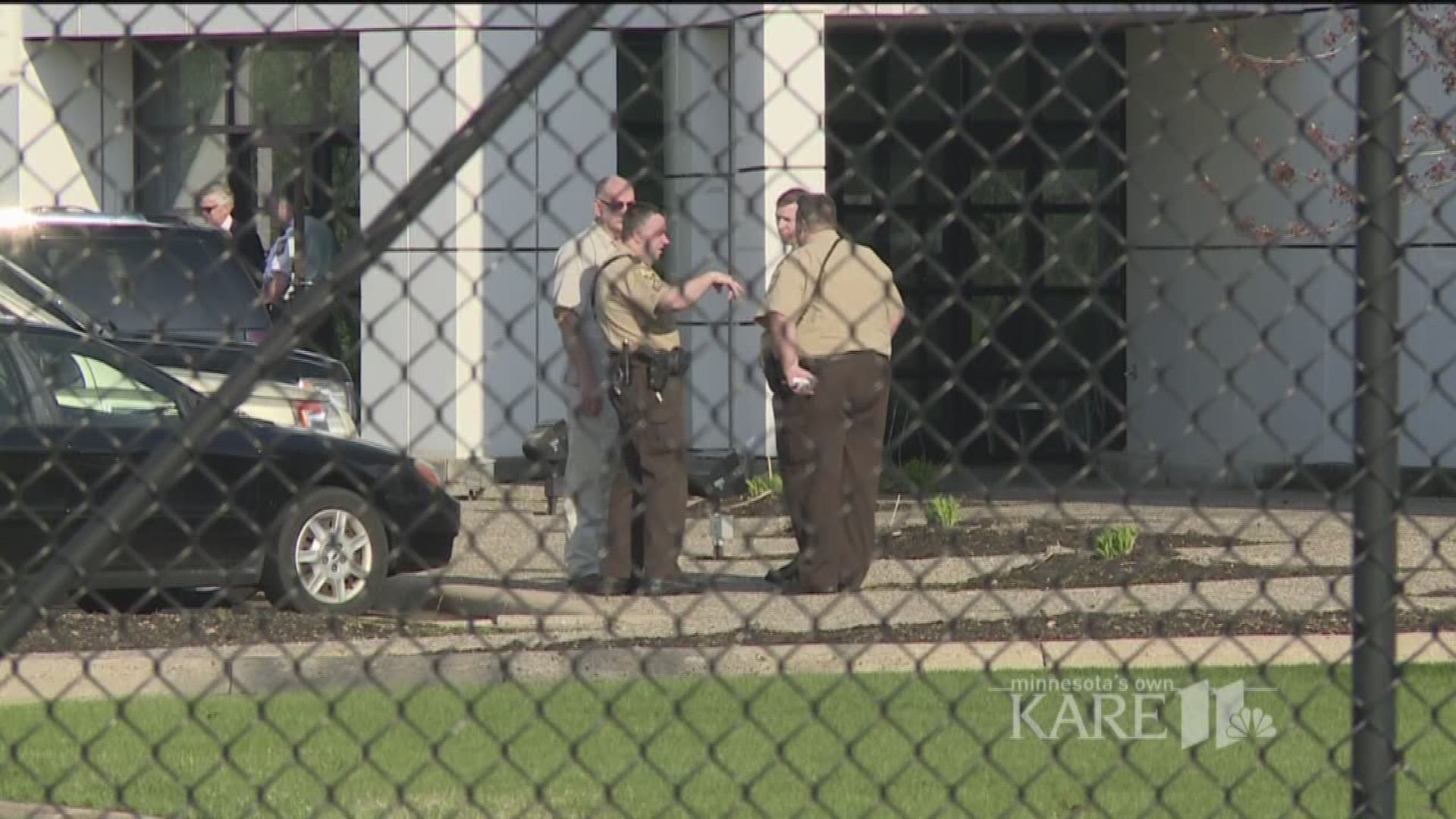GOLDEN VALLEY, Minn. - The long-awaited search warrants in Prince's death have been unsealed, revealing a lengthy list of prescription medications found throughout the singer's estate, some in the name of one of his oldest confidants -- and several containing controlled substances.
The search warrants, made public Monday morning, show more than 100 white capsules labeled Watson 853 were hidden in Aleve and Bayer Aspirin bottles and found in numerous rooms inside Paisley Park.
An online search reveals a multitude of sources that say that capsule is a mixture of acetaminophen and hydrocodone, a prescription classified as a narcotic.
CVS prescription bottles under the name Kirk Johnson -- Prince's former drummer, bodyguard and close, personal friend -- were found in the dressing room and mirror room. Each contained several different kinds of controlled substances.
Johnson has been working with Prince since the early 1980s. He is one of the only people who had unrestricted access to Paisley Park.
Investigators say after learning of Prince's toxicology screening, which showed he had a lethal dose of Fentanyl in his system at the time of his death, they found no prescriptions issued under his name -- but Johnson had a prescription for Oxycodone, which was prescribed by Dr. Michael Todd Schulenberg.
Schulenberg is the same doctor who was at Paisley Park on April 21 (the day of Prince's death) when deputies arrived on scene and the same doctor who admitted to authorities, he prescribed Oxycodone for Prince on April 14, the day before he overdosed while returning from a show in Atlanta, forcing his plane into an emergency landing.
Schulenberg told detectives he put that prescription in Johnson's name for Prince's privacy.
Below is a list of items discovered in these search warrants --
-15 white capsules (Watson 853) discovered in a second floor dressing room
-CVS pharmacy bottle under the name of Kirk Johnson/7 green capsules
-8 orange oval pills inside suitcase in mirror room/second floor
-Bayer bottle/64 white pills with Watson 853
-Aleve bottle with 20 ½ tablets labeled Watson 853
-Pamphlet for Recovery Without Walls (rehab center)
Search warrant executed May 24, 25:
-Cell tower data from Sprint, Verizon, AT&T and T-Mobile of all cell phones used at or near Prince's compound.
-All records for Kirk Johnson's cell phone, from March 21 to April 21, 2016.
A prescription monitoring warrant, issued as part of the investigation, reveals the singer was never prescribed any of the controlled substances that were found at Paisley Park.
The investigation showed Johnson would contact Dr. Schulenberg to help Prince with his hip pain. Dr. Schulenberg met with Prince and prescribed him Clonidine, Hydroxyzine Pamoate and Diazepam, according to the search warrant.
On April 20, 2016, Johnson went to a Minnetonka Walgreens to pick up Prince's medication. He later told police that was the first time he had done anything like that for Prince.
A suitcase was discovered next to Prince's bed on the day he died and among the items inside, there were prescription pill bottles in Johnson's name -- none of which were the medication prescribed by Schulenberg.
One pill bottle, which was labeled Vitamin D, instead contained a different medication inside, according to the search warrant filed by authorities. Another, labeled Ondansetron, contained the controlled substance Acetaminophen/Oxycodone hydrochloride.
The date those pills were prescribed to Johnson, according to the pill bottles, was April 7. The prescribing doctor was listed as Schulenberg.
An attorney for Schulenberg released the following statement on Monday:
Dr. Schulenberg has been and remains committed to providing full transparency regarding his practice as it relates to the Prince investigation. Dr. Schulenberg has previously disclosed all information regarding his care and treatment of Prince to his former employer, law enforcement authorities and regulatory authorities in the course of his complete cooperation with the investigation of Prince’s death. There are no restrictions on Dr. Schulenberg’s medical license, and contrary to headlines and media reports published in the wake of today’s unsealing of search warrants relating to the investigation, Dr. Schulenberg never directly prescribed opioids to Prince, nor did he ever prescribe opioids to any other person with the intent that they would be given to Prince.In his nearly 19 years of practice, Dr. Schulenberg has provided the highest level of care to his many patients and has earned a reputation for being a caring and responsible physician. He has never sought public attention or celebrity, even in the face of the events of the last year, and will continue to make his patients’ health and wellbeing his first priority.
The search warrant notes a "sizable amount of narcotic medications located inside Paisley Park" -- not just in one area but throughout the residence and in areas where Prince would commonly frequent -- his bedroom, wardrobe and laundry room.
Detectives also discovered Prince's suitcase -- which was the one found with several narcotics inside (in prescription pill bottles under Johnson's name) -- had the name tag of "Peter Bravestrong" -- an alias name authorities believe Prince used when he traveled in an attempt to maintain his privacy.
Lyrics for the song, "U Got the Look," were also found in that suitcase, written in Prince's handwriting.
-Google gmail accounts associated with Paisley Park
-All emails, images, google docs, etc.
Authorities said Prince's laptop was not taken during an initial warrant but it became clear later in the investigation that items on it would be significant when they discovered he did not communicate by cell phone, but instead used email and the hard phone line at Paisley Park, extensively.
Investigators were particularly interested in information and data related to a gmail account under "PaisleyParkAfterDark," due to Johnson's access to the account. The email was set up with a "recovery email," which detectives found was registered under Johnson's name.
Investigators spoke with one of Prince's previous bodyguards who said the singer was very untrusting of cell phones, after his cell phone was hacked and his personal information was stolen. Instead, he turned to emails, which he would access from an Apple Mac Book computer, under an account set up by his former manager. The documents state he would use this email, under his former manager's name, as his own, so people didn't know it was him -- in case it was hacked.


Prince's protégée Judith Hill also confirmed to police she spoke to Prince via land line or email, exclusively. Hill also told investigators she and the singer were involved in a romantic relationship since the fall of 2014.
The documents state Prince didn't regularly see a doctor but got routine vitamin B12 injections so he could "feel better" before performing. Those appointments were typically set up by his manager.
It's been nearly a year since Prince died from an accidental overdose at the Paisley Park estate, after being found unresponsive in one of the elevators.
Despite the search warrants which reveal Prince's access to other controlled substances, investigators still haven't traced the source of the Fentanyl that killed him, according to the latest search warrants filed last September.
Prince was 57 at the time of his death.

